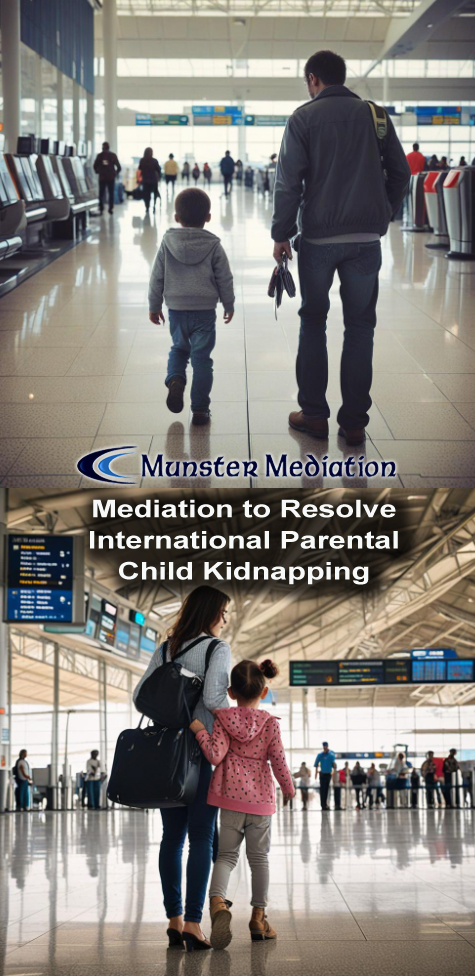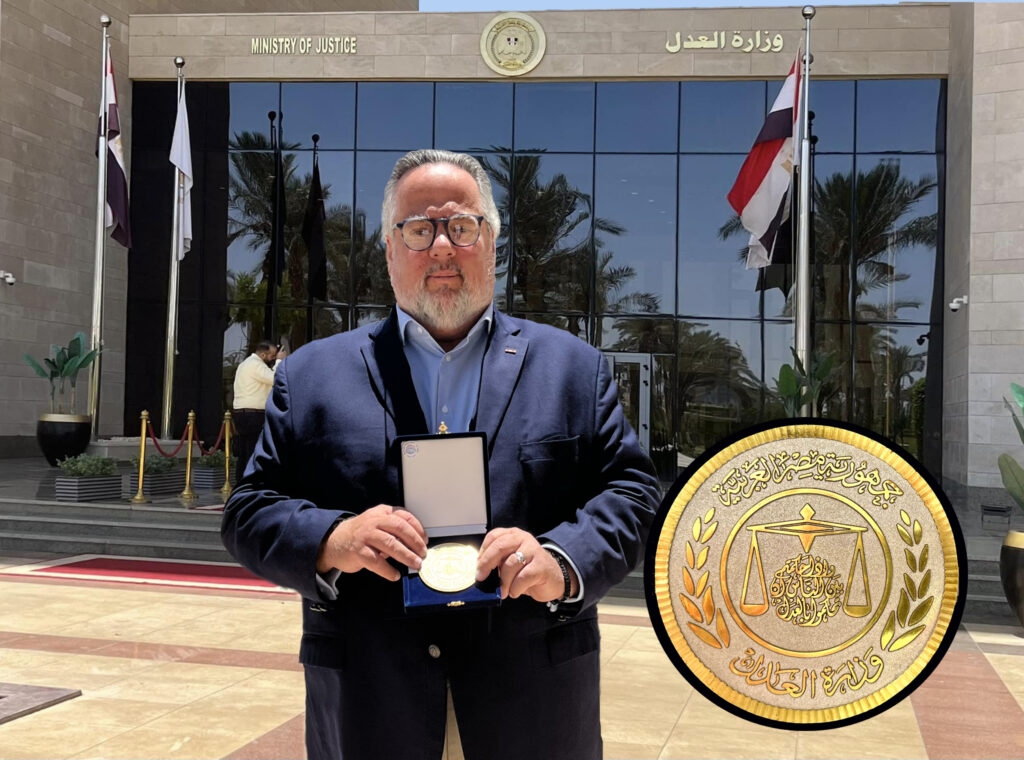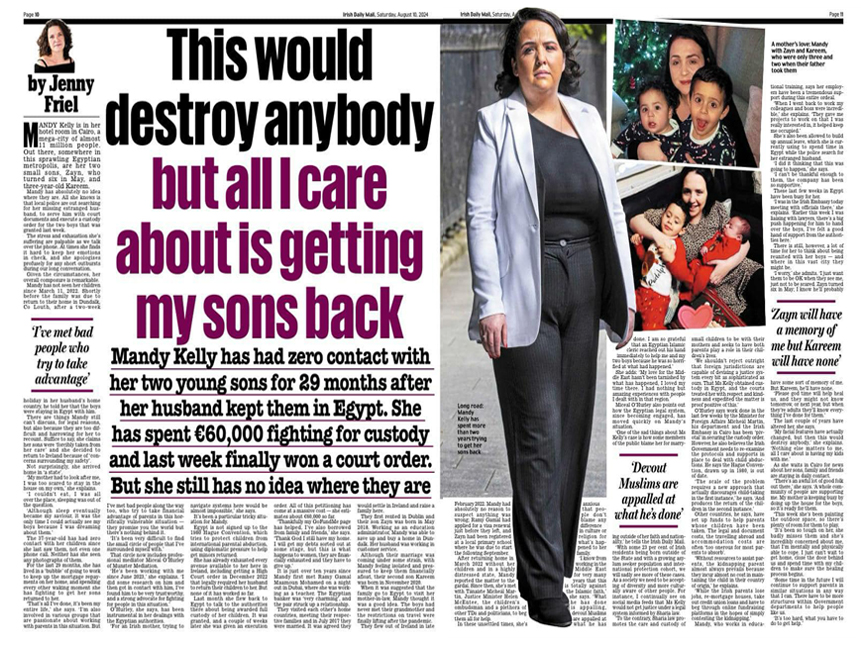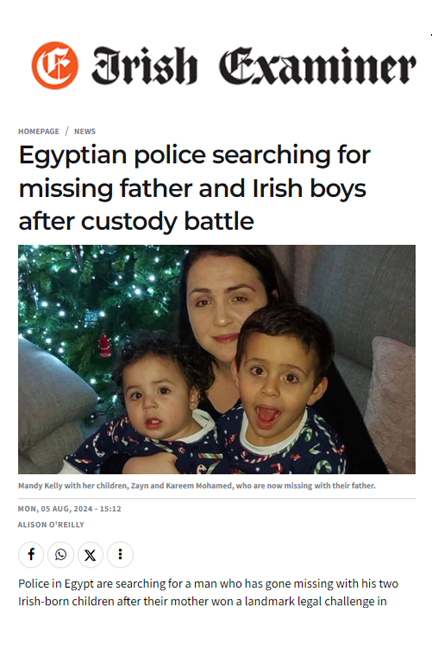International child kidnapping generally occurs when a child is removed from a jurisdiction in which they are habitually resident and taken or held by a parent and/or family member to a different jurisdiction. The world community recognised the prevalence of this problem and passed the Convention of 25 October 1980 on the Civil Aspects of International Child Abduction (Hague Convention or Hague Convention on Child Kidnapping). The States signatory to the convention has grown over time with countries either ratifying the convention or acceding to it.
The effect on the child and the ‘left behind‘ parent from whom the child was taken can be devastating, often having a life-long impact on their mental well being and ability to engage in happy, healthy relationships. Even if the country to which the ‘kidnapping parent‘ takes the child is a signatory the process does not always work as intended as many States Signatory do not fully implement the Hague Convention or their courts have never truly been reformed to implement the goals, objectives and obligations of the Hague Convention, a Treaty now more than 40-years old.

If the child has been taken to a ‘Non-Hague‘ country the situation is extremely difficult. Diplomatic remedies are few as if there were any interest in implementing protections for children the countries involved would already be signatories to the Hague Convention or would otherwise have entered into a bi-lateral agreement on child kidnapping and the recognition of foreign family court custody orders. Generally, the ‘left behind parent‘ has no choice but to enter the courts of the foreign country and submit to their jurisdiction. It is sometimes difficult, but not impossible to gain an order for custody in that foreign court, however, enforcing the judgment often proves near-impossible. In some cases, especially in courts whose laws are based on Sharia (Islamic) Law, custody can be awarded however the ‘left behind parent‘ is forbidden from returning to their home country by means of a ‘Travel Ban’. Such laws not only run contrary to the ‘best interest of the child’ principle but tend to subsidise parents who kidnap their children from their country of habitual residence.
The difficulties, cost and time required for recovery of a child using the Hague Convention or the recovery of children from a ‘Non-Hague Country‘ often exhaust parents and custodians who are exhausted or nearly bankrupted by the process. Recognising this, the Hague Convention and most ‘Non-Hague Countries‘ promote the use of mediation and conflict resolution to resolve the matter. This is often done without prejudice to any legal rights however, a resolution reached through mediation is almost always binding in law and recognised universally by courts.
The difficulties, cost and time required for recovery of a child using the Hague Convention or the recovery of children from a ‘Non-Hague Country‘ often exhaust parents and custodians who are exhausted or nearly bankrupted by the process. Recognising this, the Hague Convention and most ‘Non-Hague Countries‘ promote the use of mediation and conflict resolution to resolve the matter. This is often done without prejudice to any legal rights however, a resolution reached through mediation is almost always binding in law and recognised universally by courts.
Mediation is a process by which the ‘left behind parent‘ and the ‘kidnapping parent‘ work through an independent, third-party mediator to resolve the matter in a manner acceptable to them and enforceable by the courts. This is a difficult process as it requires a skilled mediator familiar with the subject matter and skilled in “power re-balancing” so the ‘kidnapping parent‘ doesn’t simply use their unlawfully obtained high-position for benefit.
Where Should You Turn for Help?
Good and effective mediators in international child kidnapping cases are far, few and in-between. Mediation requires both broad and specific knowledge, an understanding of the process, ability to be fair and impartial and work with lawyers, prosecutors, psychologists, judges, NGOs and diplomats to create the conditions for a successful outcome that is durable (meaning, it will last).
Contact Us Today for a No-Obligation Consultation:
Time is always a critical factor in these matters. Please contact us today if we can be of assistance: munstermediation@gmail.com

Recent International Child Kidnapping Media Below





